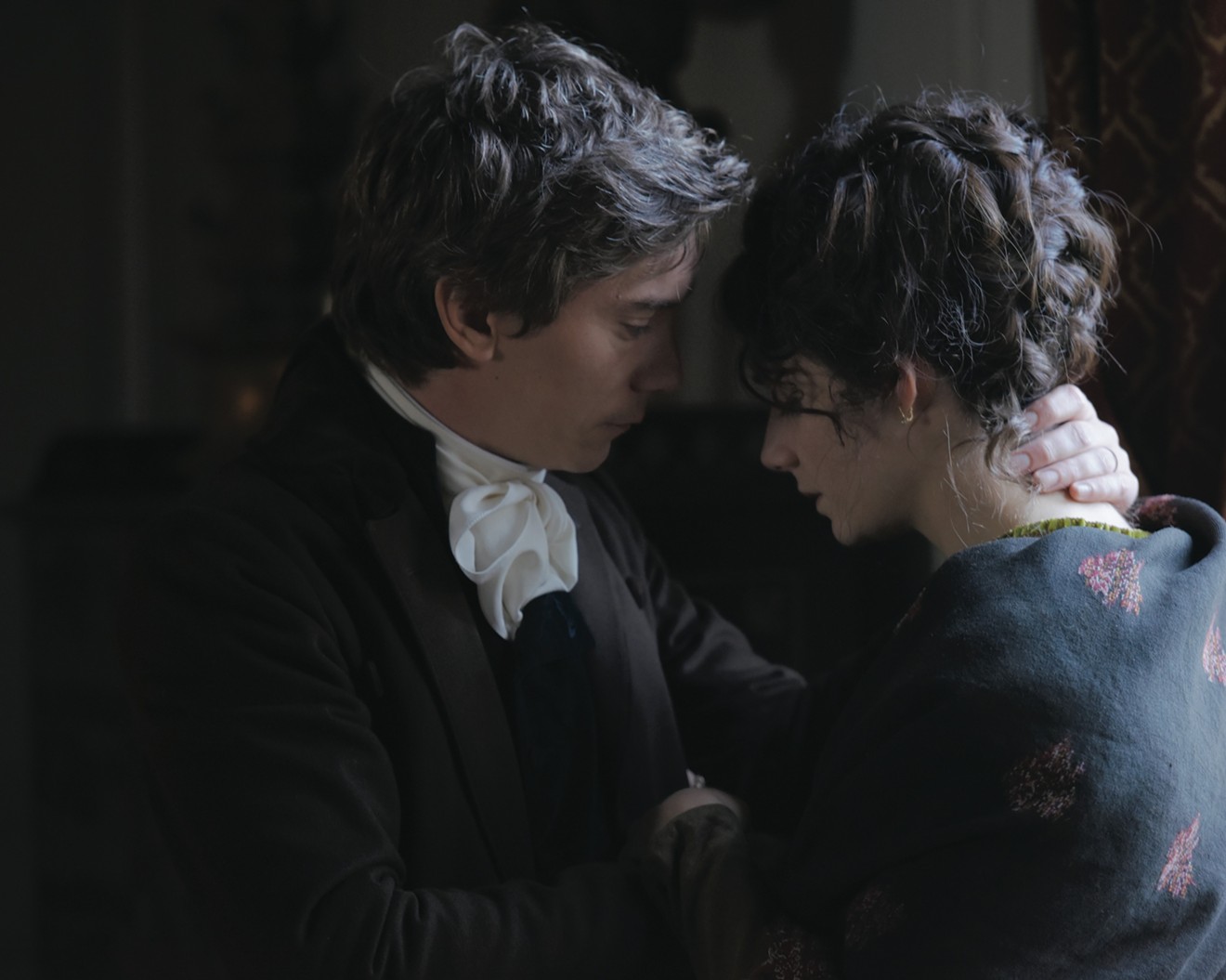Stéphane Brizé’s The Measure of a Man, from 2015, showed us a modern factory worker's soiling experience of the post-industrial economy. Now A Woman’s Life begins on the Normandy coast in the middle of the 19th century but is no less concerned with francs and debts, with how lives get circumscribed by the laws of the market. Even a lit-adaptation costume drama by this director — in this case, an exquisitely moving retelling of the first completed novel by Guy de Maupassant — is about socioeconomic confinement. Title figure Jeanne (Judith Chemla), the minor baronness whom we meet in the full bloom of youth, will find herself as cramped within Brizé’s frame as she is within her society.
Brizé (and director of photography Antoine Héberlé) shoot Jeanne’s story in the tight, boxy academy ratio, so that she seems caged even while sunning herself on the beach. When a second face enters a shot, Jeanne can look crowded in upon, especially during the long-take scene of her miserable consummation with her husband (Swann Arlaud). We see just their faces, his above and hers below, all her naive romance draining away as he listlessly thrusts. Her eyes moisten for the wrong reasons; finally, she can’t resist asking him to stop.
That contrasts sharply with an earlier, pleasurable intimacy: While being bathed by her new family’s servant, Rosalie (Nina Meurisse), Jeanne breaks into spirited giggles. She soon will discover that, from the perspective of her unfaithful spouse, she too is a kind of servant, albeit one who will carry the couple’s child and, when the marriage goes bust in the nastiest way possible, inherit the home. But this doesn’t mean her finances are secure.
Time slips past in Brizé’s film something like it does in life; as you’re caught up in one tangle of concerns, you note with a start that years have elapsed. Brizé and editor Anne Klotz create the sense that we have slipped from the present into a future that has been tainted by it, where the piercing jolts of Maupassant’s plotting have been absorbed into the life that Jeanne must keep living. They cut from tense scenes of revelation or pained discussion to less fraught moments later on — often of Jeanne tending her estate’s garden — but with the earlier scene’s sound layered over. This suggests a continuity of feeling, a consciousness swept up in, and shaped by, the accumulation of shocks and of days, seasons, years.
Those years pile up. Jeanne and her son outlive the marriage; after an explosive scene of boyish clinginess, it’s a relief to see the wee garçon suddenly a rakish man of 20. But then he, like his father, will disappoint Jeanne, who has grown more pale and less open with age. She has little romance for the world left in her, but she harbors plenty for her son — and will keep sending him money despite the potential of her own impoverishment. All of this is rendered in close takes illuminated by sunlight or candles, with an emphasis on the darkness and silence of the pre-electric world.
Maupassant’s final twists echo Brizé’s insistence that human decency should transcend class. The ending is a joy and a heartbreaker, but what lingers from this revelatory life is that compact world Jeanne inhabits, and how each tragedy, each happiness, and each everyday gesture together accrete into the woman we discover again and again.
[
{
"name": "Air - MediumRectangle - Inline Content - Mobile Display Size",
"component": "19274298",
"insertPoint": "2",
"requiredCountToDisplay": "2"
},{
"name": "Editor Picks",
"component": "17482312",
"insertPoint": "4",
"requiredCountToDisplay": "1"
},{
"name": "Inline Links",
"component": "18711090",
"insertPoint": "8th",
"startingPoint": 8,
"requiredCountToDisplay": "7",
"maxInsertions": 25
},{
"name": "Air - MediumRectangle - Combo - Inline Content",
"component": "17482310",
"insertPoint": "8th",
"startingPoint": 8,
"requiredCountToDisplay": "7",
"maxInsertions": 25
},{
"name": "Inline Links",
"component": "18711090",
"insertPoint": "8th",
"startingPoint": 12,
"requiredCountToDisplay": "11",
"maxInsertions": 25
},{
"name": "Air - Leaderboard Tower - Combo - Inline Content",
"component": "17482313",
"insertPoint": "8th",
"startingPoint": 12,
"requiredCountToDisplay": "11",
"maxInsertions": 25
}
]












